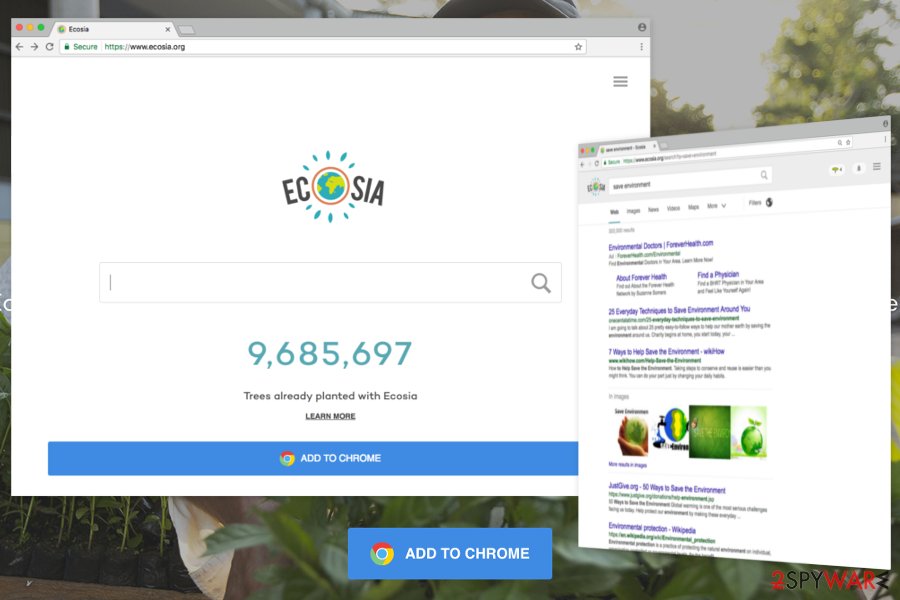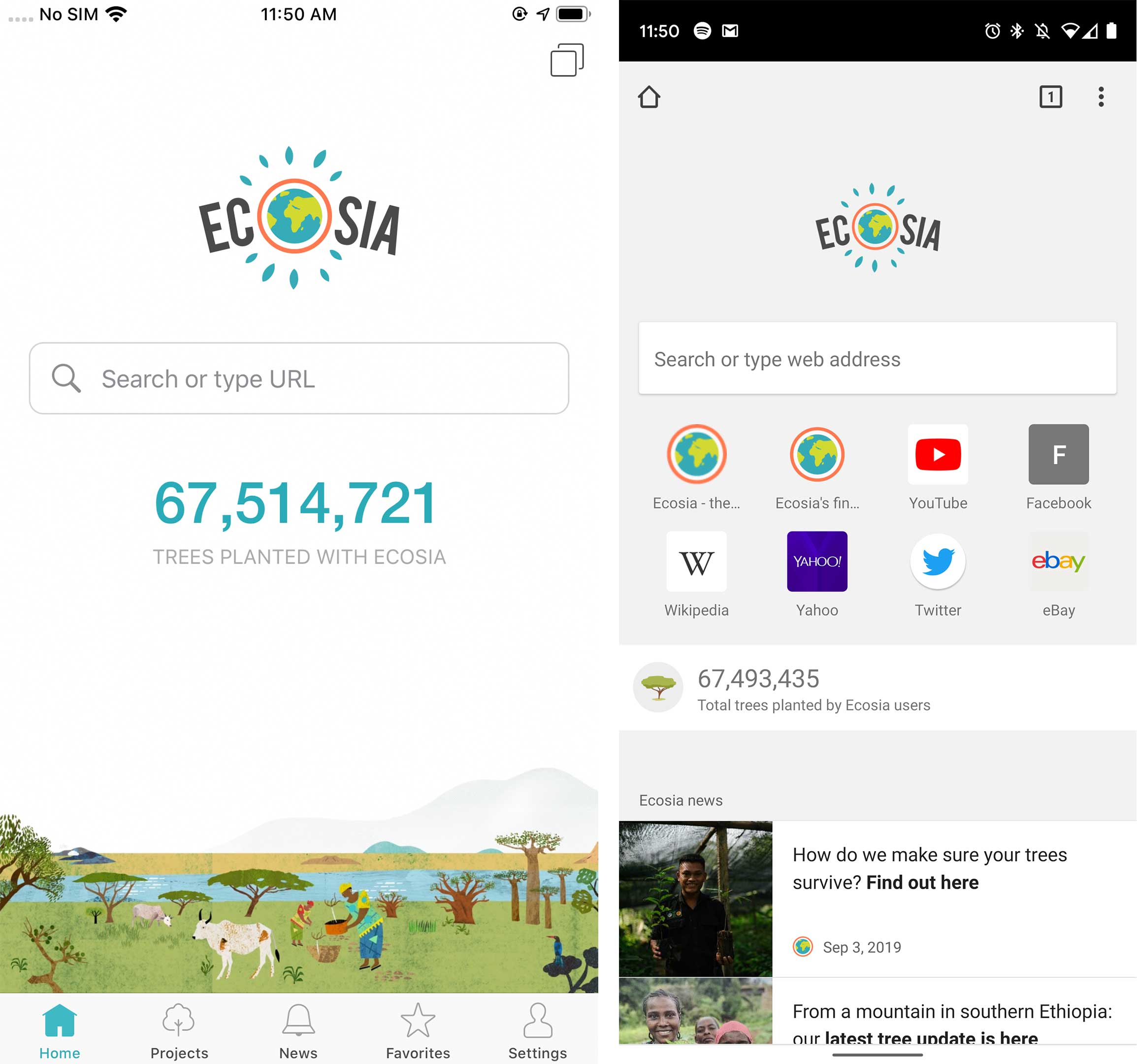

Why should anyone care? According to Imperial Climate Action, about £150,000 of sponsor funding to Imperial CSPs since 2013-14 is sourced from BP, Shell, Schlumberger, and ExxonMobil. 30 universities have already made the switch, and that number is growing.

Ecosia on Campus (EOC) is a campaign that aims to make our searches greener and has spread to over 300 campuses around the world. Imperial College Environmental Society is adopting a campaign to switch the College’s default search engine to Ecosia - a search engine that’s private, carbon negative, and plants trees in biodiversity hotspots. Imperial Environmental Society joins the global Ecosia on Campus movement. More Searching for a carbon negative campus
ECOSIA WEB BROWSER ARCHIVE
Issue Archive About Felix Write For Us Contact Felix The student newspaper of Imperial College London Remember, you are navigating the web anyway, so make it eco-friendlier.Searching for a carbon negative campus | Environment | Felix Online Felix Together, we must keep doing our part to prevent littering and deforestation in the first place, from lifestyle analysis to consumption changes and waste production. But let’s do more than surf the web.Įven if Ecosia and Ocean Hero are committed to helping revert the mentioned problems, it doesn’t mean we should just use them and do nothing else. By making one of these options as your default search engine, your simple browsing act can make a positive impact in the world. Probably, you use your browser every single day to search for your topics of interest. But don’t worry, because like Ecosia, OceanHero claims not to sell search logs or data to third parties. Using it as an extension (Chrome or Safari) or as an application (iOS and Android), you can sign up to track your contributions by counting bottles, showing your level and achievements. How OceanHero Works?įor every 5 tabs you open or 5 searches you make through OceanHero, you help collect 1 bottle from the ocean in places where people live in extreme poverty. Oceanhero search engine, Author Screenshot. Its users can also check the Search Engine achievements through a monthly report. This search engine uses the revenues earned from advertising to pay people in need to make the plastic collection operation possible.
ECOSIA WEB BROWSER FREE
Partnering with Plastic Bank and Waste Free Oceans and with the help of 4,300 collectors making a living trading plastic, OceanHero already collected over 13 million bottles from the oceans since its birth. In their first official working month, the first 60,445 searches contributed to collect 12,089 bottles. After 9 months of technical development, OceanHero was officially launched in September of 2019. OceanHero - an Ocean-saver search engineĬonsidering that billions of people use search engines, OceanHero was created with the idea that “people could do something good just by searching”. Also, if you value your data, Ecosia doesn’t sell any users data to advertisers or third-party trackers, due to its strict data policy and transparency. If you want to start using it now, Ecosia is available as an extension for Chrome and Safari. (For the last 5 months, I already planted 26 trees with over 1200 searches.)

How Ecosia works?įor you to plant a tree, it takes an average of 45 searches through the search engine.

Deforestation has high repercussions on biodiversity, soil, air and water purification, soil erosion and climate balance, depriving our world of trees positive benefits.Įcosia search engine, Author Screenshot. “Between 20, the rate of deforestation was estimated at 10 million hectares per year, down from 16 million hectares per year in the 1990s,” - Food and Agriculture OrganizationĮven if the rate is lower, it’s still too high to handle in the long-term as the speed of destroying forests is faster than the speed of tree-planting and tree-growing. According to the Food and Agriculture Organization, the world lost an estimated 420 million Ha of forest since 1990. The deforestation rate keeps going up at an alarming pace. Hence, deforestation and ocean pollution are the two main problems contributing to our planet’s suffocation. Yes, trees are not the main oxygen contributor. While the remaining 30% comes from trees and forests. Oceans contribute 70% of the global oxygen - produced primarily by the microscopic plant phytoplankton. Oceans and forests are the main contributors of oxygen, crucial to keep any being alive on Earth.


 0 kommentar(er)
0 kommentar(er)
